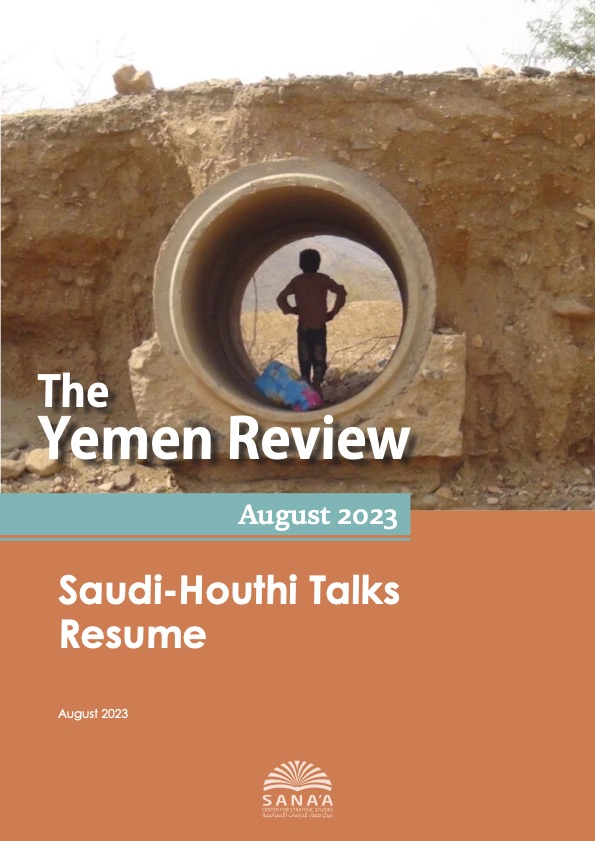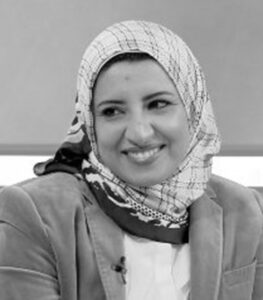Executive Summary
Military and Security
The strategic city of Marib saw an increase in fighting on several fronts. The Houthis have been reinforcing their positions in the area, which they attempted to seize in a massive and costly offensive two years ago. Should negotiations break down, Marib is seen as a likely area of renewed contestation due to its oil and gas resources.
A new counterterrorist campaign was launched in Abyan to target Al-Qaeda forces in the governorate. Named ‘Swords of Haws’, the operation is being conducted by an array of STC and pro-government forces. The campaign reported it had succeeded in securing the Rafd and Jenin Valleys, but had faced strong resistance from Al-Qaeda forces in Mudiya district.
Frontline fighting on the border of Al-Bayda and Lahj rose significantly in August, including a particularly large Houthi assault on STC positions on August 26-27 that resulted in dozens of casualties.
Two Doctors Without Borders employees were kidnapped by unidentified gunmen in Marib as they traveled from Seyoun. No group has yet claimed responsibility for the incident.
An officer investigating last month’s killing of World Food Programme Moayad Hameidi was assassinated. The officer, a member of the Taiz Political Security department, had received death threats and demanded he halt the investigation.
Five UN employees were released on August 11, after being held captive by Al-Qaeda for more than 18 months. The group was reportedly released after lengthy Omani mediation and the payment of a ransom, though the UN has disputed these claims.
Houthi forces continue to besiege villages of the Bani Nawf tribe in Al-Jawf following the killing of a prominent local Houthi commander. A number of tribes have responded by calling for united action, others have sided with the Houthis.
Politics and Diplomacy
The UN and US continued efforts to revive dormant peace talks, with UN Special Envoy Hans Grundberg and US Special Envoy Tim Lenderking traveling extensively to meet with political leaders in Yemen and the Gulf. A UN-brokered truce expired last October, but wholesale fighting has not resumed. Grundberg briefed the Security Council on the situation on August 16, and a senior US delegation headed to Riyadh at the end of the month.
After a summer hiatus, Saudi-Houthi bilateral peace talks resumed, with Saudi officials and Omani mediators, reportedly joined by two Iranian diplomats, visiting Sana’a on August 17. The talks will resume in Muscat. The negotiations have long been stuck on Houthi demands for the payment of public sector salaries and a debate over whether Saudi Arabia is a belligerent or mediator.
The UN completed the removal of oil from the FSO Safer, ending a years-long saga in which the decrepit oil tanker threatened the Red Sea with environmental and economic disaster. The oil has been transferred to a new ship, but questions remain over its future.
With public sector salaries some seven years in arrears, discontent in Houthi areas has been rising over authorities’ refusal to disburse payments. Unprecedented dissent from the teacher’s union has garnered equally rare support in the Houthi-controlled parliament, with members of the General People’s Congress party publicly criticizing the ruling authorities.
Houthi authorities have threatened to block the social media websites Facebook and YouTube after accounts linked to the group were removed from the platform. Facebook is widely used in Yemen for coordinating social events and commercial transactions. The Houthis make extensive use of social media for propaganda purposes and monitor platforms for dissent.
The government and Southern Transitional Council (STC) continue to compete domestically with the support of their respective suzerain backers. Saudi Arabia continues to push for greater local autonomy following the set-up of a new political body in Hadramawt. To this end, the head of the Presidential Leadership Council Rashad al-Alimi traveled to Al-Mahra to tout new Saudi-funded development projects. Such initiatives run counter to the ambitions of the secessionist Southern Transitional Council, supported by the UAE.
Forces from the UAE-backed Giants Brigades stormed the presidential palace on August 13, in an apparent effort to shake down Prime Minister Maeen Abdelmalek Saeed for additional funds. Government coffers have run low since the suspension of hydrocarbon exports last fall. The incident was widely condemned and the government has promised an investigation.
A declaration by Yemeni civil society groups demanding the provision of transitional justice in any future negotiated settlement has reportedly rattled Saudi officials, who fear consequences for their wartime conduct. Saudi Arabia has repeatedly sought to head off such oversight, successfully lobbying the UN to end the investigation of war crimes in Yemen in 2021.
Human Rights Watch released a report alleging that Saudi border guards had engaged in the systematic killing of hundreds of Ethiopian migrants crossing the Yemeni-Saudi border, many of whom were also subjected to rape and torture. The Saudi government has denied the accusations, but the Ethiopian government announced it would launch an investigation.
The Economy
Saudi Arabia announced US$1.2 billion in new funding for the beleaguered internationally recognized government, which was quickly running out of foreign currency. The belated assistance should help the government continue public salary payments and could alleviate fuel and power shortages in the south.
The government has approved a controversial telecommunications deal to establish a joint public-private venture with the Emirate company NX Digital Technology. Critics have accused the government of selling off public assets in the form of carrier Aden Net, but the government says more investment is necessary to provide reliable service.
A parliamentary report accused the government of widespread mismanagement and corruption across numerous sectors, alleging in particular that it had squandered vast sums on the provision of electricity amid widespread shortages. The allegations were angrily denied by Prime Minister Maeen Abdelmalek Saeed, who defended his government’s performance.
The government unveiled plans to pay public sector salaries through private banks, citing the opportunity for greater efficiency and transparency in disbursement, which would help it limit corruption. The initiative has been criticized by a number of unions, which have threatened to strike.
After months of depreciation, the value of the riyal in government-controlled areas stabilized following the announcement of new Saudi financial support. Rials in the government-held south ended the month trading at YR1471 to the dollar. In Houthi-controlled areas, riyals traded at YR535 to the dollar. Yemen’s currency bifurcated in 2020 when Houthi authorities banned newly printed notes.
Some 80 percent of power stations in government areas have been forced to shut down due to an acute fuel shortage. Government stocks had been bolstered by a Saudi fuel grant that expired in April, and it has spent vast sums attempting to purchase sufficient supplies. Residents of Aden are reportedly receiving less than four hours of electricity per day for periods during the month.
The government signed a memorandum of understanding with the UNDP to reduce insurance costs for ships entering Yemeni ports. The cost of insurance has reportedly increased 16-fold since the outbreak of the conflict, raising the prices of imported foodstuffs and other goods. Yemen imports some 90 percent of its food.
Houthi authorities announced tax and customs hikes on items entering from government-controlled territory, from 50 to 100 percent of the value of goods. The Houthi are hoping to capture a larger share of customs revenue by pushing importers to use the port of Hudaydah, which they control.
The Yemen Review is a monthly publication produced by the Sana’a Center for Strategic Studies. Launched in June 2016 as Yemen at the UN, it aims to identify and assess current diplomatic, economic, political, military, security, humanitarian, and human rights developments related to Yemen.
In producing The Yemen Review, Sana’a Center staff throughout Yemen and around the world gather information, conduct research, and hold private meetings with local, regional, and international stakeholders in order to analyze domestic and international developments.
This series is designed to provide readers with contextualized insight into the country’s most important ongoing issues.


 اقرأ المحتوى باللغة العربية
اقرأ المحتوى باللغة العربية
